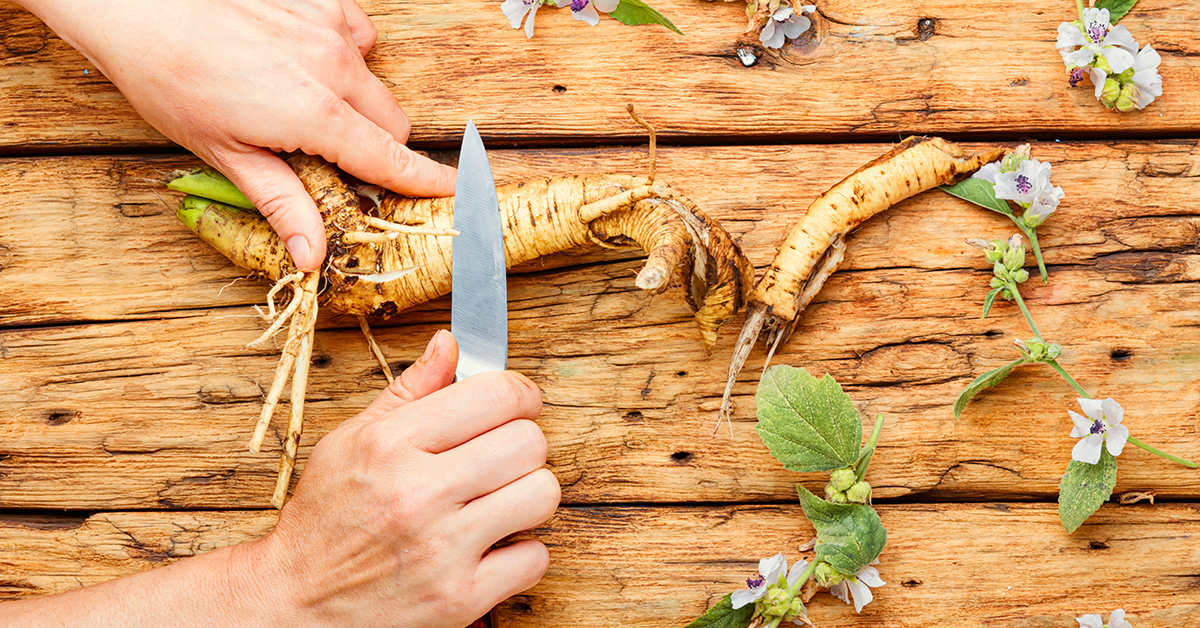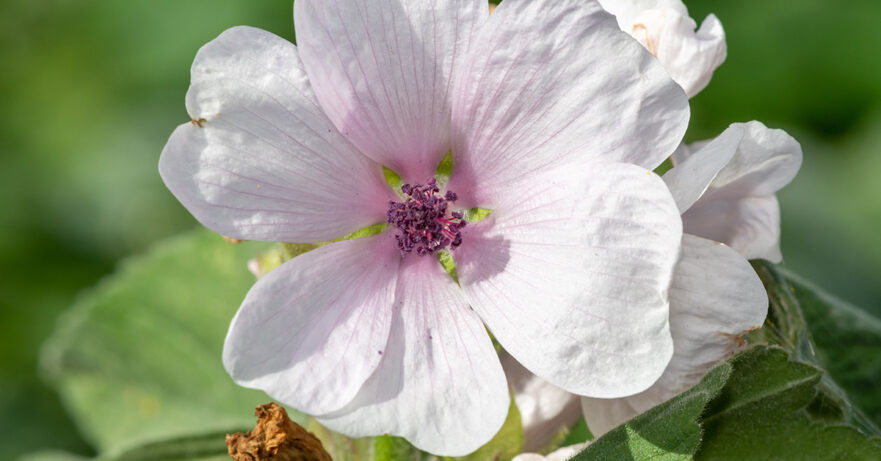In this monograph about marshmallow:
📖 Introduction | 🌱 Botanical Description | 📜 Traditional Uses | 🔍 Phytochemistry | ✨ Applications and Uses | 🛡️ Safety Profile
📖 Introduction
Marshmallow (Althaea officinalis) is a perennial herb well-regarded in herbal medicine for its mucilaginous properties.
Marshmallows’ roots and leaves have been valued for centuries across various cultures for their soothing and healing abilities, particularly for mucous membranes.
| English Name | Marshmallow |
| Latin Name | Althaea officinalis |
| Parts Used | Root, leaves |
| Traditional Uses | Soothing sore throats, digestive aid |
| Herbal Actions | Demulcent, emollient, anti-inflammatory, diuretic |
🌱 Botanical Description
Scientific Classification
Althaea officinalis falls within the Malvaceae family.
Physical Characteristics
This plant features soft, velvety leaves and pale pink flowers, with a thick, fibrous root system that is harvested for medicinal use.
Natural Habitat and Cultivation Details
Originally native to Europe, marshmallow now grows widely in damp, marshy areas worldwide. It prefers a sunny location and well-drained soil, and it’s cultivated by dividing its roots in the spring or fall.
📜 Traditional Uses
Historically, marshmallow roots and leaves have been used for their soothing effects on the digestive and respiratory tracts. Their role in folklore and herbalism includes their use as a gentle remedy for coughs, sore throats, and digestive issues due to their high mucilage content.

🔍 Phytochemistry (Active Constituents)
Marshmallow root and leaves contain several key components contributing to their medicinal properties:
- Mucilage: A polysaccharide that swells in water, forming a protective barrier on mucous membranes.
- Flavonoids: Antioxidant compounds that may contribute to the herb’s anti-inflammatory effects.
- Pectin: A type of fiber found in the root, known for its gel-forming capabilities and potential to soothe and protect irritated mucous membranes.
✨ Applications and Uses
Marshmallow is used in herbal medicine for:
- Soothing sore throats: Its mucilage content coats the throat, reducing irritation.
- Digestive health: It soothes the lining of the digestive tract and may aid in conditions like gastritis and acid reflux.
- Skin conditions: Applied topically, it can hydrate and soothe skin irritations and wounds.
The efficacy of Althea officinalis in these applications is supported by its phytochemical properties, particularly the mucilaginous compounds that provide a protective barrier and soothe inflamed tissues.
🛡️ Safety Profile
Marshmallow is generally considered safe for most people when used appropriately.
However, its mucilage content can interfere with the absorption of other medications, so it should be taken with caution and not immediately before or after taking prescription drugs. Rarely, it may cause allergic reactions in sensitive individuals. There are no well-documented serious side effects or contraindications.
Due to its potential effects on blood sugar levels, individuals with diabetes or those taking medications that affect blood sugar levels are advised to use it under the guidance of a healthcare provider.
